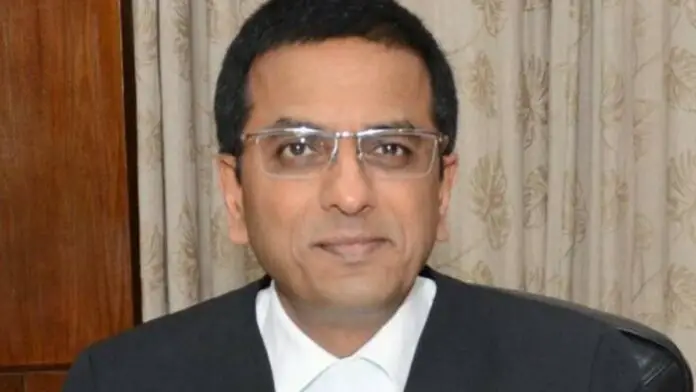
Justice DY Chandrachud of the Supreme Court believes that technology can alleviate some of the issues that cause delays in criminal proceedings, such as accused persons fleeing or official witnesses failing to appear.
The Supreme Court justice, who is also the chairwoman of the highest court’s e-committee, stated that the time has come to make official witness testimony recording a rule rather than an exception.
“Technology, I believe, holds the answers. One of the primary objectives that the Supreme Court’s e-committee is now pursuing is ensuring that we can tap into and monitor whose cases have accused absconding. We need to tap them at the police station level as well as at the district level. We can then rise it to the state’s Director General of Police “he stated
The Model Virtual Courtrooms in the Districts of Angul and Nayagarh, Odisha, was inaugurated by Justice Chandrachud.
At the same time, the judge noted that the country has a digital divide and stated that it must be addressed for the sake of two key players in the system: common litigants and bar members. The introduction of e-Seva Kendra as a solution for lawyers who may lack access to technology was underlined by the judge in this regard. “We must guarantee that we bridge the digital divide for members of the Bar by providing resources.” Those resources might be made available through a one-stop-shop of e-Seva Kendras at every District Court in the state of Orissa. “The e-Seva Kendra should be at the core of the District Court structure, where all residents seeking services under the e-courts facility may easily reach it,” he stated.
Justice Chandrachud further praised the two female district judges who presided over the Angul and Nayagarh courts. “I want to congratulate them and remind them that they are role models in the work that they do, not just for the judiciary but for women across the state and across the country, and they are role models for males as well,” he said. The judge concluded his remarks by praising steps taken by the state of Odisha that could serve as models for other states and the Supreme Court.
“Let us stress the role of technology in making life easier and more responsive to all stakeholders in our system. With that initiative in mind, we are taking these small changes that will go a long way toward making justice more accessible and transparent.”








